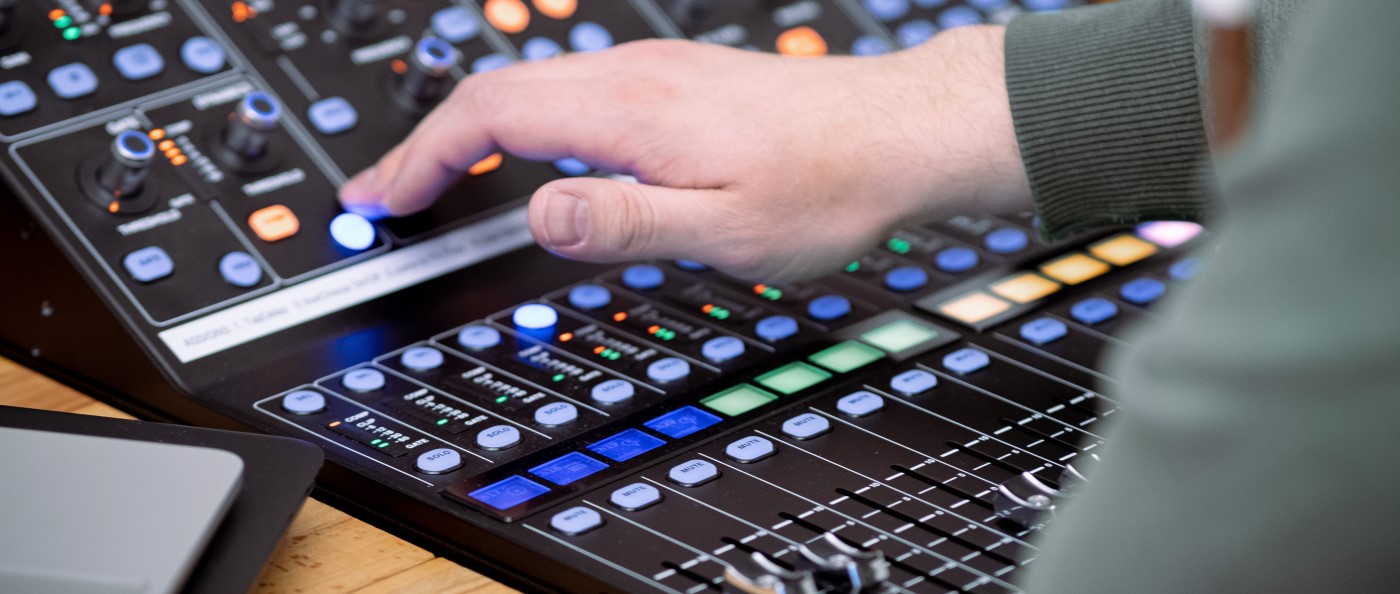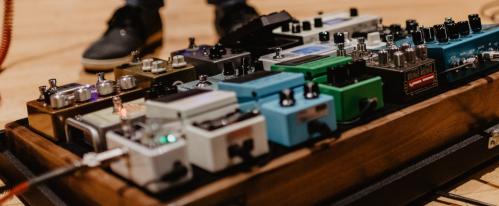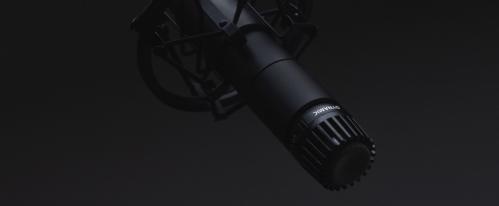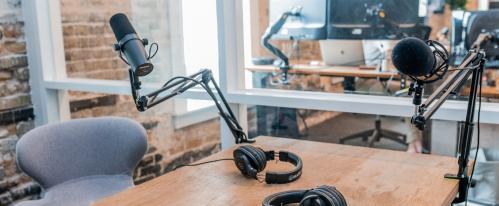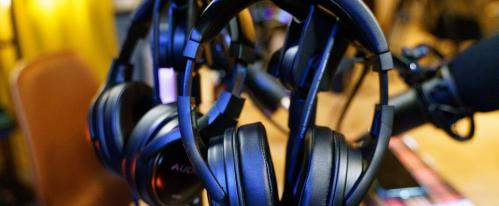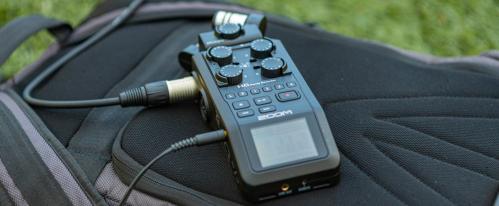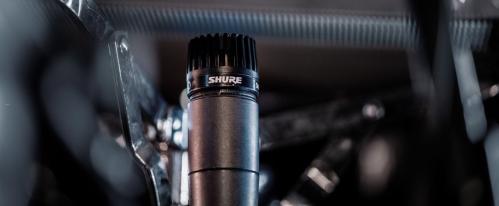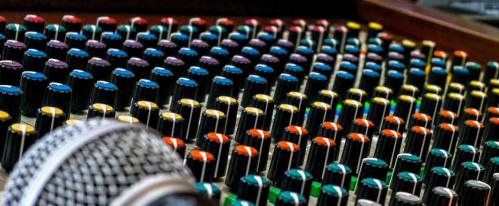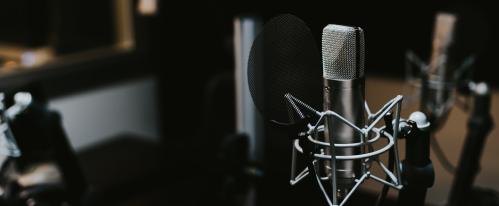Get to grips with home studio mixers and find the best small mixing desk for your space with our top picks and guide to using a mixer in your home studio
No matter if you’re a hobbyist home recorder, beginner podcaster, or a seasoned bedroom producer, you’ve probably asked yourself the question:
“Do I need a mixer in my studio?”
In this guide we’ll answer all of your questions and look at some of our favourite mixing desks for small studios, as well as considering some different ways you can choose to set-up your space.
If you’re looking for an upgrade on your existing mixer or wondering how you can add one to your studio, keep reading for our guide to home studio mixing desks and find the best picks from Trumix, RCF, Yamaha and more.
Our favourite choices for the best small home studio mixer are:
Do I Need a Mixer in my Home Studio?
The short answer to this question is – no.
You don’t need a mixer to start recording at home and capture high-quality sounds.
Many people opt to not use a mixer in order to save space at home. Modern DAW software will allow you to mix your tracks and get close to the same results ‘in-the-box'.
However, there are many reasons why you might choose to use a mixer.
Mixers can add ‘colour’ to your recordings which can be desirable if you’re making certain types of music. The added warmth from an analogue mixer, in addition to the EQ, Faders, and Compression or FX, may be reason enough for you to use a mixer in your studio.
Home Studio Mixer or Audio Interface?
The central component and core of your studio will be your audio interface.
Audio Interfaces are necessary to turn all analogue signals into digital signals so that your computer can read and process them.
Unless your studio is based around something other than a computer – like a tape recorder, for example - then you’ll definitely need to invest in an audio interface if you’ve not already.
You can still use a mixer with your audio interface, and as mentioned above, there are many reasons why you might choose to do so!
There are also some options that combine the functionality of a mixer with the AD conversion capabilities of an interface – find out more about these options below and figure out the best home studio mixer setup for you...
How to Use a Mixer in a Home Studio
All different types of studio setup can benefit from the addition of a mixer. Regardless of if you’re making music, recording voice-overs, or livestreaming a podcast, you might find your productions will improve by simply adding a mixer to your workflow.
Here are some ways that you can utilise a mixer in your home studio...
Using a Mixer to Record More Microphones
Many small home studios are centred around an audio interface that has a small number of inputs. By connecting a mixer to an input on your interface, you’re able to take advantage of each individual channel on the mixer and therefore add more microphones than you’d usually be able to.
For example - if you used a 10-channel mixer, you’d be able to get a range of up to 10 different microphones around a drum kit and mix them into one stereo drum sound that you could record via two channels on your interface.
This method relies on getting a good sound at the source, as you won’t be able to pick apart each individual track once the output of the mixer has been recorded. However, this is a great method to use for those who don’t have any need to upgrade their interface and still want the ability to use multi-mic setups.
Using a Mixer to... Mix
Many people prefer the feel and responsiveness of an actual mixing desk compared to using a digital program.
In particular, those who have come from a live sound background or simply have more experience using a physical mixer will often find they are better-suited to the feel of the sliders or the workflow that comes with the physical mixer.
They’re also useful for those who need on-the-fly control of levels, such as podcast hosts.
Using a Mixer for Signal Routing
Using a mixer connected to your interface allows you to connect all of your equipment together with minimal hassle.
If all of the gear that you use to record is connected to the mixer, you can send any input (or mix of inputs) to the output and record from there.
You’re also able to attach additional monitors and reference your mixes through different speakers – so in addition to giving you a quicker way to work, you also have more flexibility and options for testing what you’re creating.
The Best Small Home Studio Mixer
Without further ado, let’s dig into the best home studio mixing desks and find out what the PMT Experts are using to record...
Trumix MX2 and MX4 USB Mixers
When we’re asked about recommendations for home studio mixers, our go-to choice is almost always from Trumix.
The MX2 is a highly-adaptable 2-channel mini mixer/interface that is perfectly suited for singer/songwriters and podcasters. The simple plug-in and play set-up means you can take it anywhere, with simple power options via USB connection or a 5v USB wall plug.
With headphone monitoring, stereo outputs, and phantom power, you have access to everything you need to get started.
For those who need a little more from a mixer, the MX4 is an incredible option that adds a further two channels and powerful onboard DSP FX for complete control of your sound. Plus, this mixer also has Bluetooth connectivity – so if you ever need to take it out of your studio and use it for live gigs or events, it’s more than capable of handling what you’ll need.
RCF F6X 6-Channel Studio Mixing Console
Building upon the rich analog legacy of the RCF E Series, the F6X 6-Channel Studio Mixing Console is an ideal option for home studios and small recording spaces.
Boasting 2 Mic/Line inputs with high quality preamps, 2 Stereo line inputs, and 1 Aux/FX (post), this mixer also combines state-of-the-art EQ with awesome DSP FX that come with 16 different presets.
Designed and engineered in Italy, the build is exceptionally high-quality and will last a lifetime for use with home recording, podcasts, broadcast and more.
Yamaha MG10XUF 10-Channel USB Mixer
If you’re in need of some more channels but don’t want to break the bank, our favourite pick is the acclaimed Yamaha MG10XUF 10-Channel USB Mixer.
With Class-A preamps, a custom-designed Op-Amp, 1-knob compressors, and a versatile EQ and filtering set-up, this is a truly professional option that will upgrade your home studio. It’s also the first option on our list that gives you access to traditional faders for a familiar feel and intuitive control.
The acclaimed SPX digital FX sound just as good as you’d expect, and with an included download of Cubase AI you’re ready to get going with all of the essential tools you need straight out of the box.
Allen & Heath ZEDi-10FX Hybrid Compact Mixer
Combining the studio-ready sound of an audio interface with the hands-on control of a mixer, the Allen & Heath ZEDi-10FX Hybrid Compact Mixer is a unique option for those who seek a streamlined home studio.
The 24-bit/96kHz 4×4 USB interface delivers epic analogue warmth through a GSPre boutique preamp design, originally developed from the revered GS-R24 console.
Two of the 10 channels feature guitar DI high-impedance inputs for a superb option for tracking instruments directly, and with access to a specially-crafted suite of FX from Allen & Heath’s audio wizards you’re able to record with versatile sounds and minimal hassle.
A true all-rounder, this clever piece of gear is ready to become the powerhouse of your home studio!
Soundcraft Signature 10 Analogue Mixer
Inspired by the famous Ghost consoles from Soundcraft, the Signature 10 Analogue Mixer is a home studio option that has amassed a number of fans thanks to its premium feel and specialist features.
The mic pres in particular have been built with incredible attention-to-detail, boasting a beautiful transparency and dynamic range. The Sapphyre Asymmetric EQ is truly versatile and allows for a range of fully-sculpted sounds, including a sweepable mid-band.
The effects engine is powered by Lexicon, so it’s just as powerful as you’d expect, with award-winning reverbs, delays and more.
The switchable Hi-Z inputs allow for easy tracking of guitars, basses and other instruments, whilst the fusion of a comprehensive Soundcraft GB audio routing setup with extra-smooth premium faders gives this desk a high-end feel.
Conclusions
Adding a mixer to your home studio can transform your workflow and make your music-making or content creation process easier.
Whether or not a mixer is right for you is something that you’ll only be able to decide through experimentation, but getting your home studio mixer setup right should be a lot easier now that you can see the sort of gear the Experts at PMT are using.
All of these recommendations for a home studio mixer are based on years of experience building studios and kitting out spaces that will inspire you to make music and content. If you’re still unsure, we recommend opting for a budget mixing desk at first and finding out how you like to use it – and if you find that you want to upgrade, you can check out all of the mixing desk options at PMT here:
Visit your local PMT Store or call us on 0151 448 2089 to speak to one of our Experts about your needs, and find the latest studio gear online now – including a huge selection of pre-owned and more!

